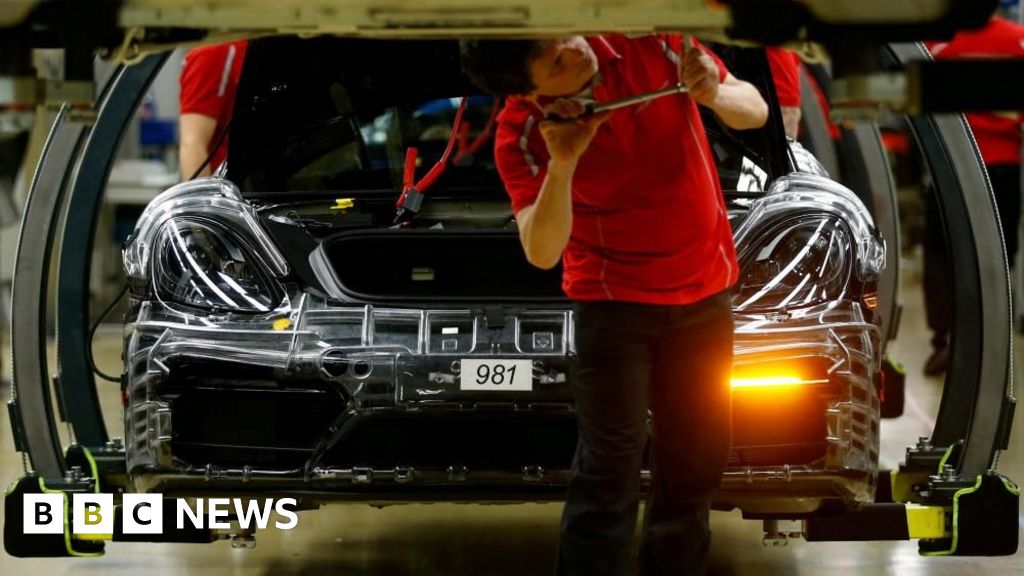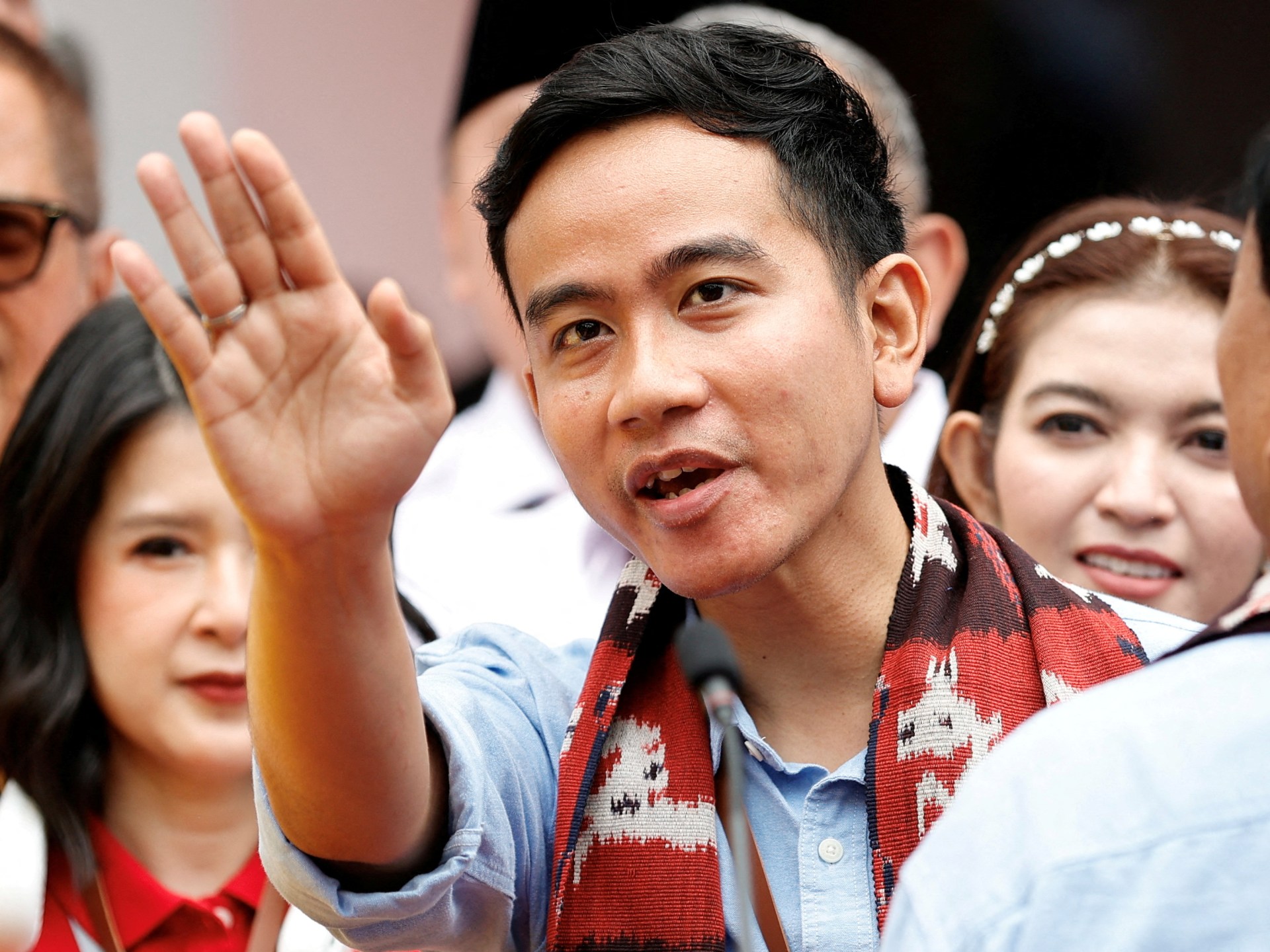
Scepticism as Gibran Rakabuming Raka runs for Indonesia’s vice presidency | Elections News
- Politics
- February 6, 2024
- No Comment
- 544
Solo, Indonesia – For more than 40 years, Sarti has been cycling his pedicab around the streets of the Indonesian city of Surakarta, or Solo.
It’s a tough job, especially in the relentless heat, and the wiry 67-year-old’s muscles strain as he pushes on the pedals to manoeuvre his vehicle through the traffic. Sweat drips from his brow and he puffs his way along the narrow backstreets, his passengers seated in the canopied cab in front of him.
For all the effort, business can be slow, and Sarti sometimes earns just one dollar a day.
Government support has been crucial for his survival, and he has nothing but praise for President Joko Widodo, better known as Jokowi, who was Solo’s mayor from 2005 to 2012.
“I liked Jokowi, I liked him so much. He was such a good mayor of Solo. He would visit all the areas of the city, handing out aid and groceries to people and providing financial assistance,” he told Al Jazeera.
“He really cared about people who were struggling.”
But when it comes to Jokowi’s son, it’s a different story.
Gibran Rakabuming Raka followed in his father’s footsteps to run for mayor of Solo in 2020 and is now a vice presidential candidate in the elections scheduled for February 14.

Gibran is just 36, and despite being mayor since February 2021, Sarti says he has never met him.
“He has never visited many of the poorer parts of the city, like his father used to,” he said.
“Gibran picks the people he wants to help. He doesn’t help everyone. He doesn’t help all the residents of Solo.”
‘A good kid’
Solo, despite its stature as the former home of the president and the historic royal capital of Java, is a relatively small city with a population of about half a million people.
Known for its old-world charm, it boasts two royal palaces, is renowned for the quality of its traditional batik and is surrounded by rice fields.
When Gibran, the eldest of Jokowi’s three children, announced that he was planning to run as Solo’s mayor, many residents were surprised, even those who had known him since he was a child.
“He is a good kid, all of Jokowi’s children are. They are polite and hard workers, but I was surprised when he became mayor of Solo because I thought it was too soon for him to hold that kind of office,” Slamet Raharjo, a longtime friend of the family, told Al Jazeera.
“Logically, you have to take it step by step. You can’t create leadership in a moment. It is a psychological process that takes time, but he has been forced to grow up quickly.”
Gibran, who was born in 1987, had never appeared to harbour any political aspirations.
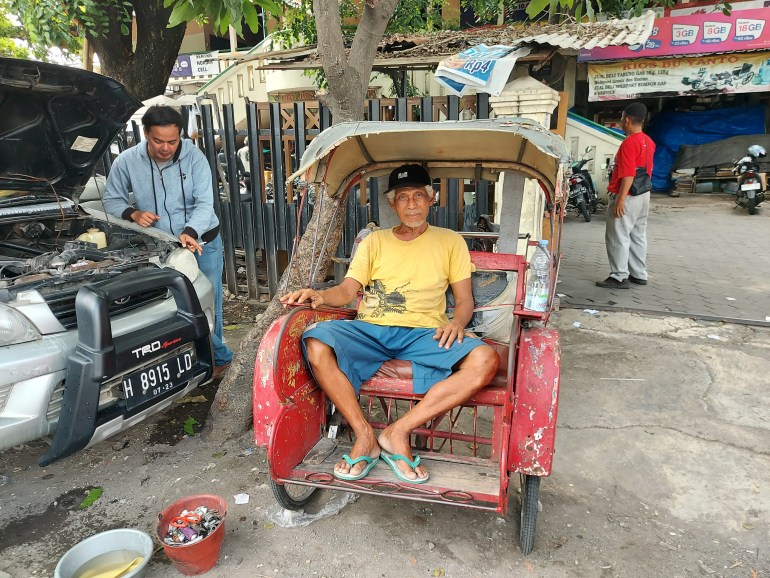
He studied at secondary school in Singapore and then in Australia before returning to Singapore and earning a bachelor’s degree in management. Most expected him to join the family’s now famous furniture business, as his father had done.
Instead, Gibran opened a catering business in 2010, and five years later a chain of pancake shops. Markobar, as he called the business, focused heavily on digital marketing, but has since closed.
Local residents laughed when asked if Gibran had ever personally fried any of the sweet treats.
Markobar had been designed to appeal to a social media crowd and featured signature dishes of eight and 16 flavours such as chocolate and green tea, priced from $2.50 for a single topping.
In a city where the pancakes, called murtabak, are known as a cheap street food snack, Markobar was considered expensive.
While the pancakes flopped, local residents say Girban’s tenure as mayor has been more successful.
They say he made efforts to improve the city by further developing infrastructure and public transport, as well as designing initiatives to foster inclusivity.
These included setting up decorations in front of the town hall to celebrate various religious holidays, including during the Christmas period, which some saw as an effort to enhance religious tolerance in a country where 87 percent of the population is Muslim.
Still under probation
Fransiskus Xaverius Hadi Rudyatmo, who was deputy under Jokowi and took over from him in 2012 until 2021, told Al Jazeera that he had been blindsided when Gibran’s vice presidential candidacy was first mentioned.
“I was disappointed when Gibran ran for the vice presidency. He isn’t old enough and has only been mayor for two years. If you work in an office for two years, you are still in your probation period,” Rudyatmo said.
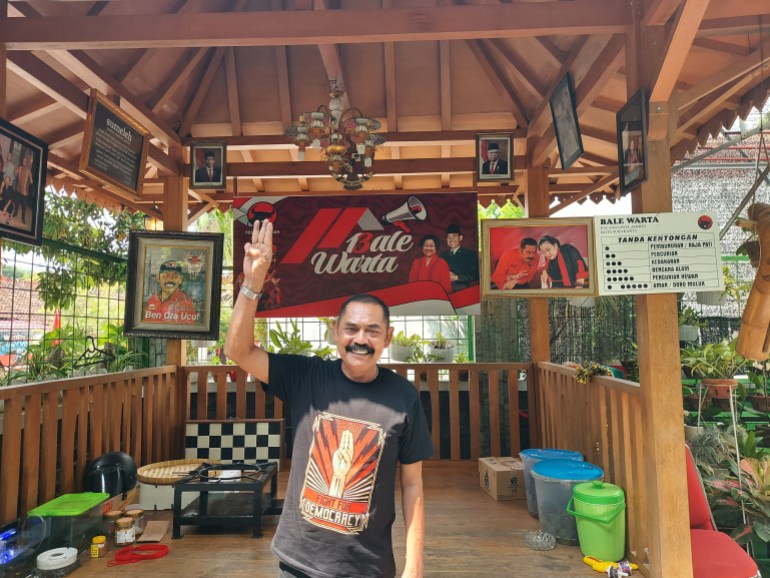
When Gibran originally stood for mayor, Rudyatmo said that he rallied behind the young candidate because they were both members of Indonesia’s Democratic Party of Struggle (PDI-P), a secular-nationalist party that champions workers’ rights across Indonesia.
But he was shocked when Gibran announced that he would run as a vice presidential candidate alongside three-time presidential hopeful Prabowo Subianto, who was twice beaten to the presidency by Jokowi and is leader of the Gerindra Party, and backed by Golkar, which has close ties to the Indonesian military and was the ruling political group under former presidents Soeharto and BJ Habibie.
Following the shock announcement, PDI-P said that Gibran had left the party, which already had candidates for president and vice president in the form of Ganjar Pranowo, the governor of Central Java, and Mahfud MD, the current coordinating minister for political, legal and security affairs, as vice president.
Many wondered whether Jokowi, who had advanced to the very top with PDI-P, had shifted his support away from the party in favour of his son and Prabowo, a former general, although he has not formally endorsed the duo.
“It’s like they forgot where they came from,” Rudyatmo said of the apparent rift between Gibran, Jokowi and the PDI-P.
Gibran’s path to the vice presidency has also been controversial.
Under electoral rules, he should have been ineligible because all candidates for the presidency and vice presidency must be at least 40 years old.
But in October last year, following a series of legal challenges to lower the age limit, Indonesia’s Constitutional Court ruled that while the minimum age would remain at 40, it did not apply to candidates who had previously held publicly elected office, like Gibran.
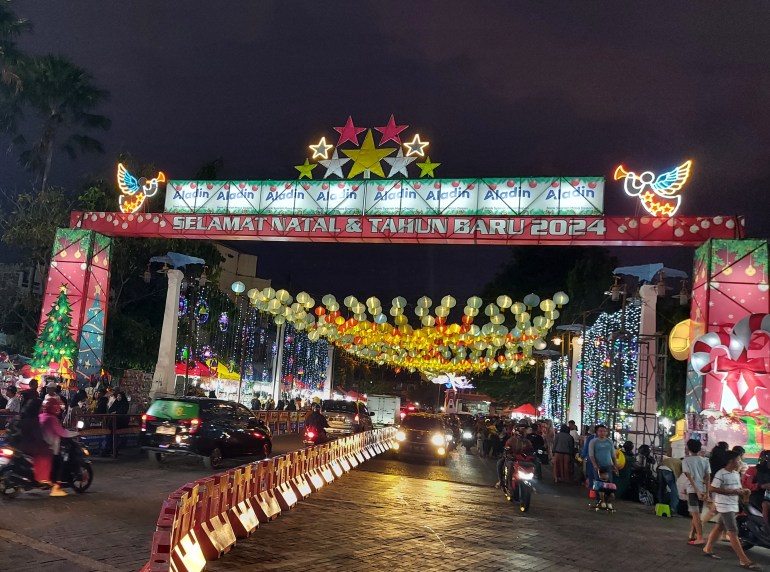
The decision, handed down by the head of the court, Chief Justice Anwar Usman, Jokowi’s brother-in-law, created a firestorm and allegations of nepotism and corruption.
Following an investigation, the Constitutional Court Honorary Council removed Usman from his position for failing to recuse himself from the proceedings. He was, however, allowed to remain a Constitutional Court judge and the court’s original decision on the age limits was upheld.
“There were pros and cons, but it seemed like it shouldn’t have been allowed, and they forced it through anyway,” Edy Saryanto, the chairman of the trader’s association at Notoharjo Market in Solo, told Al Jazeera of the Constitutional Court furore.
Saryanto described Gibran as “fine” but “not like his father”.
“It is not the time for him to think about the country. He shouldn’t try to force things. He needs to be mayor of Solo for two terms like his father, and then run for governor. His knowledge needs to be fully baked,” he said.
Some, however, like family friend Raharjo, disagree.
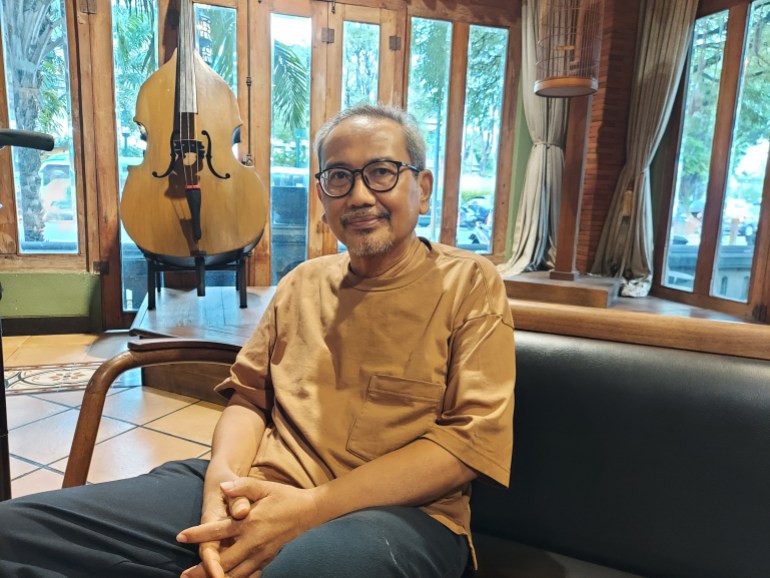
They note that the legal challenge preceding the Constitutional Court ruling had not been filed by either Gibran or Jokowi but by a number of people including university students, members of the Indonesian Solidarity Party (PSI) and several regional heads.
“If the Constitutional Court decision had only had Gibran’s name in it and said that only he was allowed to run despite not meeting the age requirement, that would have been one thing and people could have rightly complained,” he said. “The decision was absolutely legal.”
Undecided
For now, Gibran’s meteoric rise, and particularly his split with the PDI-P, has made many voters uneasy.
Some Solo residents said they were still deciding which pair to back.
Pedicab driver Sarti said that while he voted for Jokowi twice when he ran for president, his loyalties were with the PDI-P and “Gibran is not there anymore”.
For others, such as 58-year-old car park attendant Tawar, the minutiae of Gibran’s political affiliations are less important than his origins.
“As a son of Solo, of course, he will be good, and I am proud of him,” he said, saying that Gibran had ensured the city was safe.
“I am so grateful that I was born and work here,” he said. “I will be proud to tell my grandchildren that a child of Solo is the vice president. Whoever is chosen will doubtless be a good leader, because they were chosen by the people.”
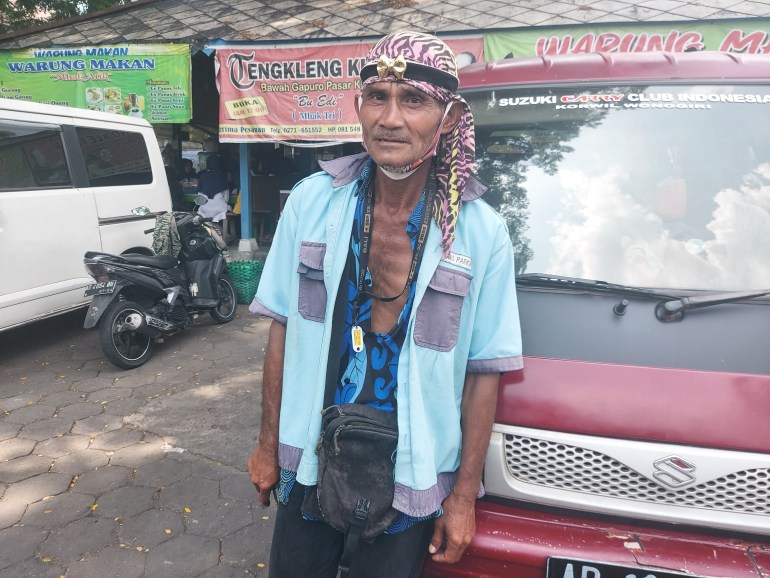
Raharjo said that he too would be voting for Gibran because he was not familiar with any of the other candidates. The third duo in the race is former Governor of Jakarta Anies Baswedan and Deputy Speaker of the People’s Representative Council, Muhaimin Iskandar.
“The only person I know personally who is running for office is Gibran,” Raharjo said.
“Gibran is my friend’s son, and I will always support my friend.”
#Scepticism #Gibran #Rakabuming #Raka #runs #Indonesias #vice #presidency #Elections #News



